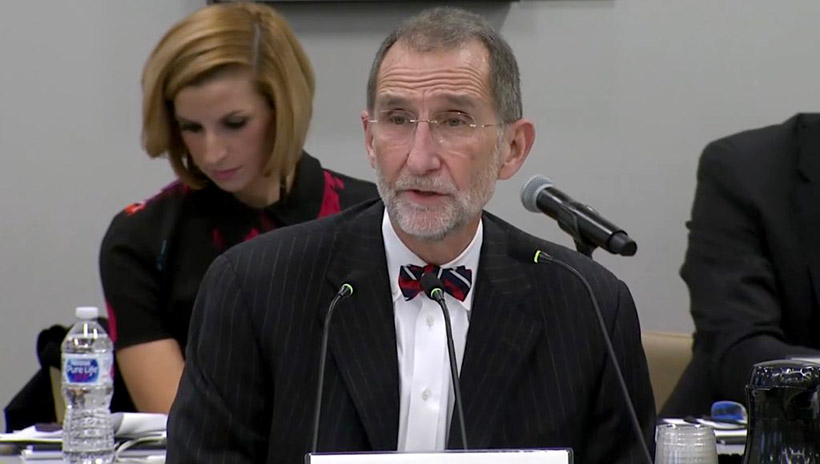Publisher's note: This post appears here courtesy of the Carolina Journal, and written by Lindsay Marchello.
Dr. William Roper, interim president of the University of North Carolina System, addresses the UNC Board of Governors on Jan. 17, 2020. | Photo: UNC-TV Screenshot
Money topped the list of needs from North Carolina's institutions of higher education in a meeting Thursday, April 2, of the House Select Committee on COVID-19 Education Working Group.
The economy won't recover if colleges and universities aren't there to prepare a workforce, higher education leaders told a bipartisan group of representatives.
The coronavirus pandemic has forced universities and colleges to transition to online learning and send the majority of their students home. The changes pose challenges for N.C. higher education institutions. Some can be tackled with money. Others require regulatory reform.
The University of North Carolina System, the N.C. Community College System, and the N.C. Independent Colleges and Universities are asking the General Assembly for financial help.
All want money to cover the transition to online learning.
Nearly 100% of UNC courses are now online, said Dr. Bill Roper, interim UNC system president. A greater investment in a more robust online education is needed.
Reimbursements for students and enrollment growth must also be covered, higher ed leaders said.
UNC is asking for a little more than $29 million to pay for education delivered from January to December 2019. The $29 million would come from the $75 million set aside in the vetoed budget bill for enrollment growth toward stabilizing finances at UNC system schools.
The
N.C. Community College System wants a one-time $25-million reserve for summer enrollment, said NCCCS President Peter Hans. For the 2020-21 fiscal year, the community college system wants $41.5 million in recurring funding for enrollment growth.
Dr. Hope Williams, president of NCICU, provided lawmakers a variety of financial
requests ranging from restoring NCICU students for state lottery scholarship aid to providing $10 million in one-time spending to students whose families were affected by COVID-19.
Another suggestion would restore $20 million to the North Carolina Need Based Scholarship, returning it to pre-recession levels.
Or the General Assembly could provide $36 million in non-recurring funds to the 36 NCICU institutions based on a formula similar to the federal response - splitting 75% to NCNBS recipients and 25% to non-NCNBS recipients.
Higher education leaders aren't just looking for money, but also waivers for certain education requirements.
NCICU student teachers and counselors are required to complete internships to graduate, but the COVID-19 pandemic makes that impossible, Williams said.
Lawmakers should waive that requirement, Williams said, as well as waive GPA and testing requirements for admission to teacher preparation programs.
The UNC system also asked the General Assembly to waive repayment of financial aid for students who withdrew due to COVID-19, waive interest on outstanding student balances, and make it easier for retired health and education workers to return to the workforce.


























